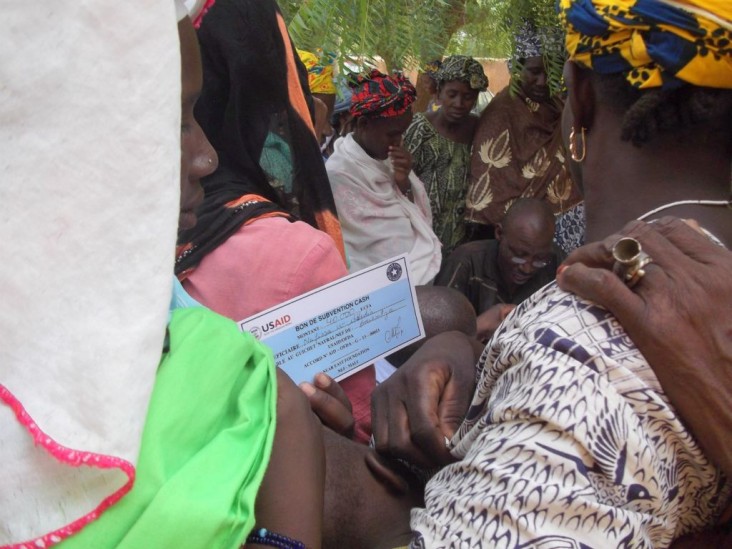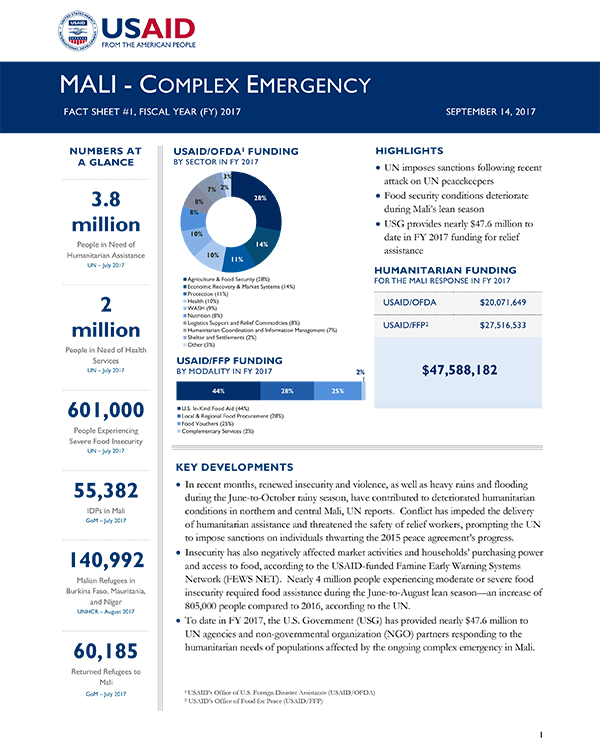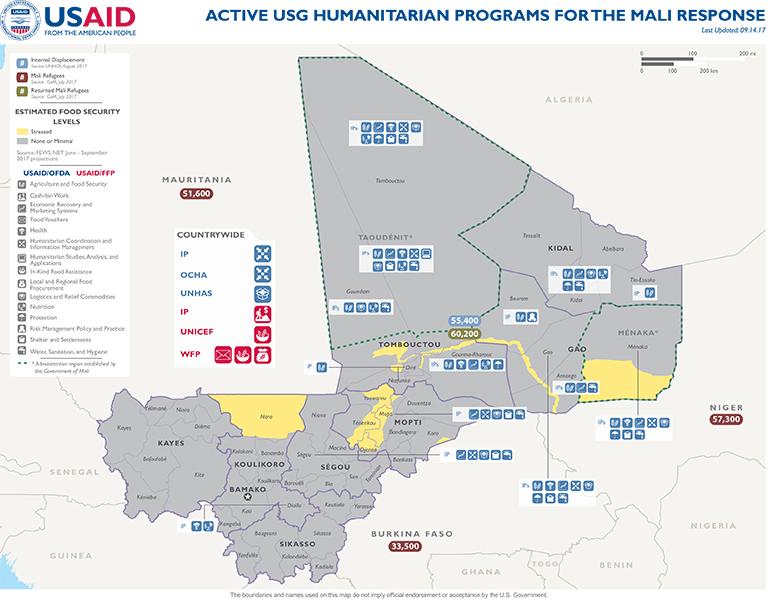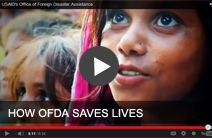- What We Do
- Agriculture and Food Security
- Democracy, Human Rights and Governance
- Economic Growth and Trade
- Education
- Ending Extreme Poverty
- Environment and Global Climate Change
- Gender Equality and Women's Empowerment
- Global Health
- Water and Sanitation
- Working in Crises and Conflict
- Disaster Assistance
- Political Transition Initiatives
- Conflict Mitigation and Prevention
- Countering Violent Extremism
- Disaster Risk Reduction
- Peacebuilding and Reconciliation
- Providing Safe & Secure Environments for Development
- Recovering From Crisis
- Resilience
- Tech Challenge for Atrocity Prevention
- World Humanitarian Day
- U.S. Global Development Lab

Latest Mali Fact Sheet
Mali Complex Emergency Fact Sheet #1 - 09-14-2017 ![]() (pdf - 327k)
(pdf - 327k)
Mali Map - 09-14-2017 ![]() (pdf - 525k)
(pdf - 525k)
Key Developments
In recent months, renewed insecurity and violence, as well as heavy rains and flooding during the June-to-October rainy season, have contributed to deteriorated humanitarian conditions in northern and central Mali, UN reports. Conflict has impeded the delivery of humanitarian assistance and threatened the safety of relief workers, prompting the UN to impose sanctions on individuals thwarting the 2015 peace agreement’s progress.
Insecurity has also negatively affected market activities and households’ purchasing power and access to food, according to the USAID-funded Famine Early Warning Systems Network. Nearly 4 million people experiencing moderate or severe food insecurity required food assistance during the June-to-August lean season—an increase of 805,000 people compared to 2016, according to the UN.
To date in FY 2017, the U.S. government has provided nearly $47.6 million to UN agencies and non-governmental organization partners responding to the humanitarian needs of populations affected by the ongoing complex emergency in Mali.
Background
Since 2012, conflict in northern Mali has resulted in displacement, violence, and food insecurity. Improvements in the availability of food and basic services and security conditions in some parts of the country resulted in the return of approximately 60,200 displaced people to areas of origin; however, the UN reported that approximately 55,400 people remained internally displaced, while 141,000 Malians had fled to neighboring countries as of July 2017. Prolonged displacement, disrupted trade flows, and constrained humanitarian access continued to increase vulnerabilities among affected families, according to the UN.
On October 13, 2016, U.S. Ambassador Paul A. Folsmbee reissued a disaster declaration due to the ongoing complex emergency in Mali. In response, USAID’s Office of U.S. Foreign Disaster Assistance (USAID/OFDA) supported food-insecure and vulnerable internally displaced persons and host community members through projects that aimed to reactivate agricultural production, restore food security, and revitalize livelihood activities. In addition, USAID/OFDA improved access to emergency health care, protection services, safe drinking water, and sanitation infrastructure. USAID/OFDA also funded technical support and data collection on internally displaced persons, returnees, and host communities to ensure effective, appropriate assistance.










Comment
Make a general inquiry or suggest an improvement.